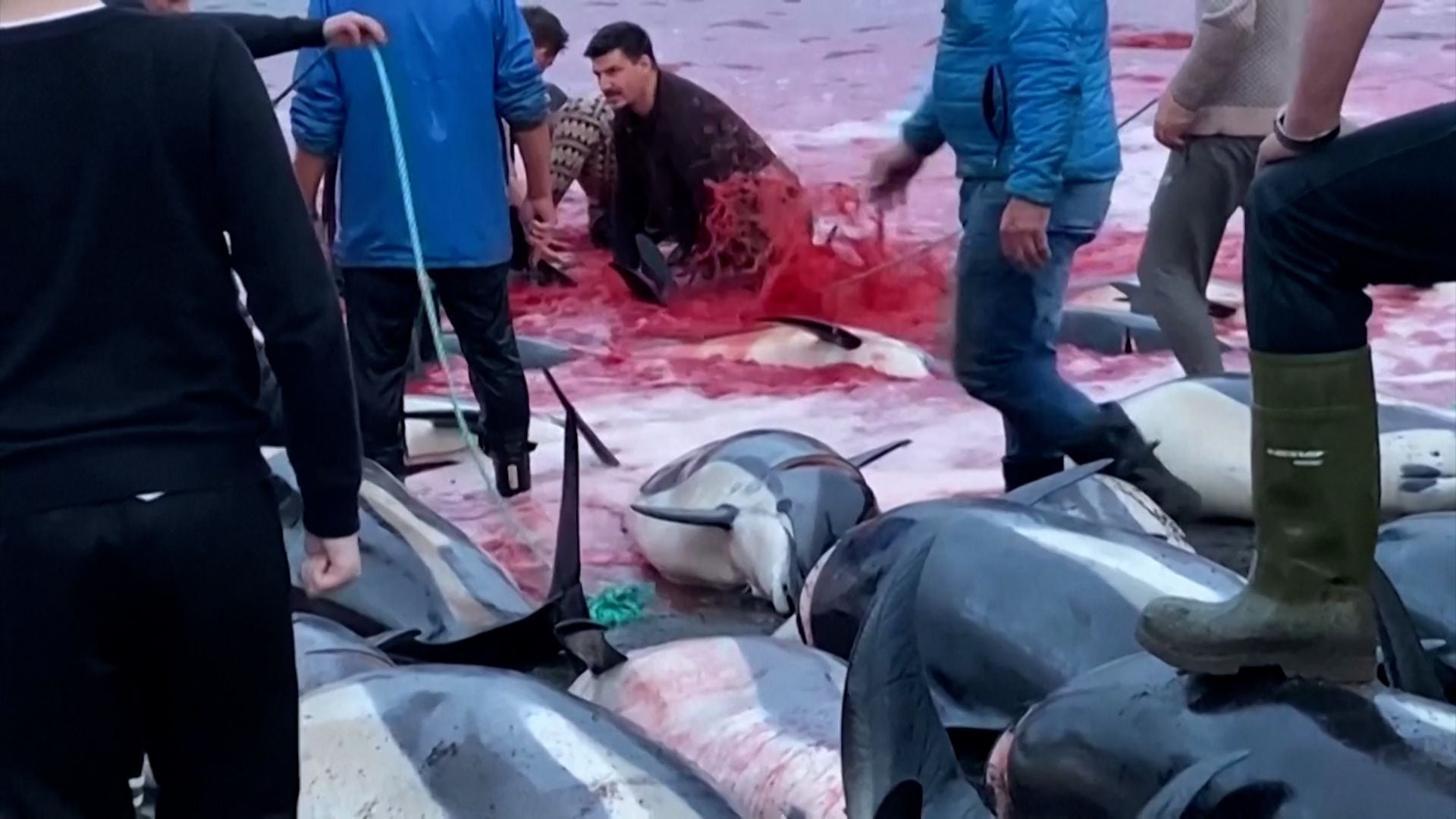
More than 20 dolphins were found dead on a beach on the Black Sea in Istanbul, prompting experts to question whether their deaths were related to the war in Ukraine, Turkish media reported on Saturday.
A volunteer from an NGO helping street animals found the bodies of 24 dolphins on a beach in Agacli, north of Istanbul, located on the shores of the Black Sea, and alerted authorities, according to Turkish private channel NTV.
The gendarmerie collected the remains of the animals to determine the cause of their death.
“The shore on the other side (Ukraine) is a war zone. Did they die from the chemicals in the water? The cause must be determined,” Gurkan Gazoglu, the volunteer who found the dead dolphins, told NTV.
“A month ago there has been an extraordinary increase in the number of dolphins found dead on the western shores of the Black Sea in Turkey,” the Turkish maritime research foundation said in a statement on Saturday.
Most dolphins died trapped in fishing nets or trawls, but the reason for the unprecedented increase in these cases and their concentration in the Black Sea remains unexplained, according to the foundation.
The Faroe Islands are considering limiting its traditional dolphin slaughter
The Faroe Islands, a Danish autonomous territory, announced last February that discussions had begun on the future of their controversial dolphin hunt, and a decision is expected in the coming weeks.

A petition with nearly 1.3 million signatures from around the world calling for a ban on traditional hunting was submitted Monday to the Faroese government, the prime minister's office and whale conservation groups told AFP news agency.
At a meeting Tuesday in Torshavn, the government discussed the findings of a reassessment that Prime Minister Bardur to Steig Nielsen had ordered in September, after the unusually large massacre of more than 1,400 Atlantic white-flanked dolphins provoked protests.
“It was a first meeting. No decisions were made,” an official from the prime minister's office told AFP.
He added that a final decision was expected “in a few weeks”, and there were “several options” on the table.

In the Faroese tradition known as “grindadrap”, or “grind” for short, hunters surround dolphins or whales with a wide semicircle of fishing boats and lead them to a shallow bay where they are stranded.
On the shore fishermen kill them with knives.
Every summer, images of the bloody hunt make headlines around the world and provoke outrage among animal rights advocates who consider the practice barbaric.
But hunting still enjoys wide support in the Faroe Islands, where supporters point out that animals have been feeding the local population for centuries.

Normally, around 600 whales are hunted each year in this way.
But the dolphin hunt on September 12, 2021 in the Skala Fjord was much larger, prompting an international protest and forcing the government to reconsider the practice.
(With information from AFP)
KEEP READING:
Últimas Noticias
Debanhi Escobar: they secured the motel where she was found lifeless in a cistern
Members of the Specialized Prosecutor's Office in Nuevo León secured the Nueva Castilla Motel as part of the investigations into the case

The oldest person in the world died at the age of 119
Kane Tanaka lived in Japan. She was born six months earlier than George Orwell, the same year that the Wright brothers first flew, and Marie Curie became the first woman to win a Nobel Prize

Macabre find in CDMX: they left a body bagged and tied in a taxi
The body was left in the back seats of the car. It was covered with black bags and tied with industrial tape
The eagles of America will face Manchester City in a duel of legends. Here are the details
The top Mexican football champion will play a match with Pep Guardiola's squad in the Lone Star Cup

Why is it good to bring dogs out to know the world when they are puppies
A so-called protection against the spread of diseases threatens the integral development of dogs




